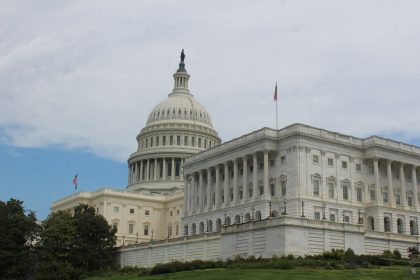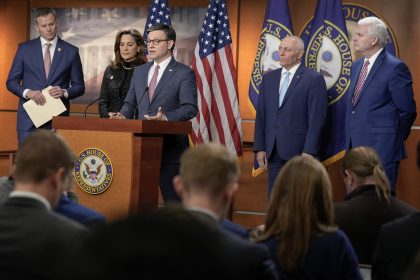US Government Digital Currency Gets a Second Look in Congress

WASHINGTON — The U.S. dollar risks losing its preeminence in international transactions unless the Federal Reserve moves promptly to sponsor a digital currency, economists told Congress Tuesday.
Once again, the main competitive threat to U.S. currency comes from China, according to witnesses at a House Financial Services subcommittee hearing.
The Chinese already are using digital currency in a pilot program for bank-to-bank transfers with Thailand and the United Arab Emirates. They found they can lower their currency exchange costs and make faster transactions using digital.
“The whole digital landscape is changing and the Federal Reserve needs to catch up,” said Andrew Levin, a Dartmouth University economics professor.
U.S. money will continue to be the preferred means of international exchange among foreign nations for only another two years or so if the United States fails to develop a digital currency, Levin said.
Without it, “They’ll all migrate to other digital currencies,” he told the subcommittee on national security, international development and monetary policy.
Digital currency refers to any currency or money that is primarily managed, stored or exchanged on digital computer systems, especially over the internet. Most commonly it means cryptocurrency, like Bitcoin.
There is a growing consensus among economists it should include central bank currency, such as through the U.S. Federal Reserve Bank. A central bank is a government financial institution that issues currency.
Until now, nearly all digital currency has been issued by private financial institutions.
U.S. government financial institutions have urged caution dealing with digital currency. They say it has no equity backing it up, which means it is an inherently unstable form of money.
Its value is derived only from agreement among its owners that it should be recognized as money.
In a 2013 warning to consumers, the U.S. Department of Treasury defined digital currency as “a medium of exchange that operates like a currency in some environments but does not have all the attributes of real currency.”
The U.S. Justice Department has prosecuted several digital currency operations reputed to be used for Ponzi schemes and money laundering.
Government financial regulators began reconsidering their opinions in 2016 after China’s central bank released a report saying that “the conditions are ripe for digital currencies, which can reduce operating costs, increase efficiency and enable a wide range of new applications.”
In 2019, China began a test program with a cryptocurrency, or “Digital Currency Electronic Payment,” that could operate separately from the regular banking system.
Some economists said the Chinese digital currency could be used to circumvent U.S. dollars in international banking and settlement of payments, thereby weakening America’s ability to leverage the dollar as the world currency. State Department officials say it also could help China pursue its broader geopolitical interests.
The warnings continued at the congressional hearing Tuesday.
“If the U.S. moves too slowly, we risk being overtaken,” said Rep. Jim Himes, D-Conn., the subcommittee chairman.
Rep. Andy Barr, R-Ky., suggested avoiding a rush by the Federal Reserve to play catch-up to the Chinese, saying the volatile digital currency could create risks to consumers and the government.
“It is more important to get it right,” he said.
Julia Coronado, president of the independent economic research firm MacroPolicy Perspective, said, “Doing nothing is not an option.”
Digital currencies that operate separately but together with traditional finances could provide a backstop to the U.S. economy in times of economic turbulence, she said.
“Digital payments could also diminish risks to financial stability,” she said.























